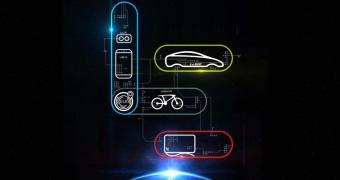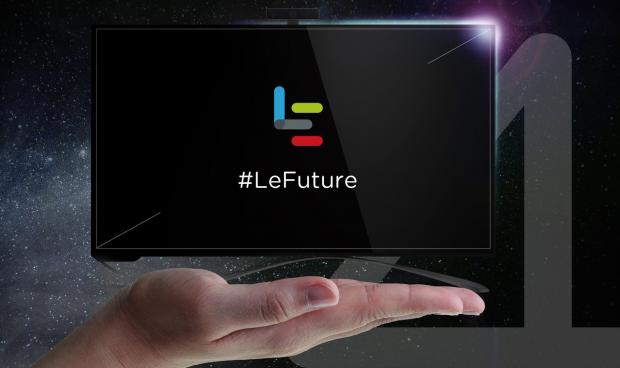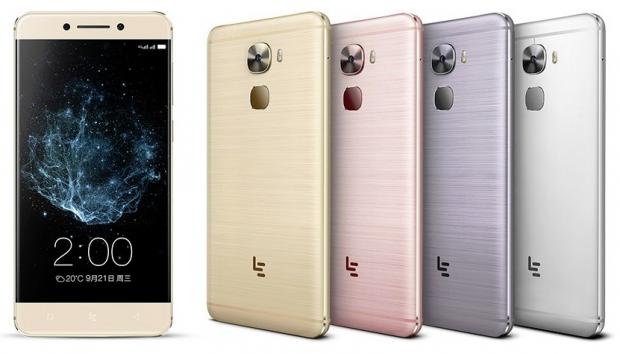LeEco is one of world's largest tech companies, or we should say "was" considering the circumstances. LeEco's businesses cover a wide range of high-tech sectors including smartphones, TVs, media content, electric bicycles and cars, as well as movies.
Founded 12 years ago by Jia Yueting, LeEco is a holding company that owns many businesses all over the world. However, the Chinese giant started its climb in the Mainland, as the first streaming company in China to go public.
LeEco is also known as China's Netflix since it's the largest company in the country that provides media content and products that are linked to its services.
After conquering the Chinese market, Jia decided to launch businesses in other countries, which is why the products of his companies where marketed internationally under the Letv brand.
The United States, one of the biggest markets in the world, but also one of the most competitive, couldn't have been overlooked by the Chinese giant. In July 2016, LeEco announced that it acquired American TVs manufacturer Vizio, a company known for its cheap products, for $2 billion.
Vizio was LeEco's foothold in the US market, one that the Chinese company wanted to expand in a very short time. Effective November 2016, LeEco started the assault in the United States and brought its amazingly cheap Android smartphones to this market.
The LeEco Le Pro3 is a high-end smartphone powered by Qualcomm's Snapdragon 821 processor, coupled with either 4GB or 6GB of RAM, as well as 32GB/64GB or 64GB/128GB storage. In the US, LeEco sold the cheaper version with 4GB of RAM and 64GB of internal memory for just $400 outright.
On top of that, the Chinese company offered $100 vouchers to customers who wanted to purchase the LeEco Le Pro3, slashing the phone's price to just $300.
The sale of smartphones is a very small part of LeEco's business in the United States, as the Chinese giant continues to sell TVs after Vizio's acquisition, as well as headphones and “smart bicycles” through its privately-owned marketplace LeMall.
Unfortunately, many Chinese companies that sell smartphones can't understand the business model of the Western handset makers, which is one of the reasons they fail to become popular in North America and Europe.
ZTE, Huawei, Lenovo and a few others are exceptions, as they have been present in these markets for a long time and understood what they had to do in order to have a chance of competing with other handset makers.
First of all, LeEco has started selling its high-end smartphones via flash sales at its LeMall online store. The Chinese giant has never announced how many devices managed to sell during these flash sales, probably because it's not that important for LeEco.
You see, LeEco doesn't make any money selling its smartphones in the United States, which is one of the reasons the company is in big financial troubles nowadays.
The only reason LeEco and other Chinese companies sell their smartphones very cheap is to make you use their software and services that come pre-installed on these devices.
For example, the LeEco Le Pro3 sold in the US comes with a plethora of third-party apps and media services offered by the Chinese company, which are not on par with what other US-based media content providers offer.
When you buy the Le Pro3 you are allowed to use these media content services for free for a limited time, but then you have to subscribe if you want to continue to use them, much like Hulu, Netflix and other video streaming services.
That strategy might have worked in China, but in the US where competition in the media content market is so fierce, LeEco's services are completely redundant.
Selling so many smartphones in the US with such a low profit margin proved to be fatal for LeEco, as billionaire CEO Jia Yueting announced last month that his company was almost out of cash following an aggressive marketing campaign that took almost all of LeEco's resources.
“As we sped ahead blindfolded, and expanded our business by burning cash, we got overstretched in our global strategy,” Mr. Jia wrote in the letter to employees.
Jia says that he wants to invest $10 million and reduce his monthly income to $0.15 to try to work it out and expand LeEco's business in the United States. Moreover, LeEco laid off 10% of its workforce and is now looking to sell some of its side businesses like LeSEE and some of its real estate ventures.
In the meantime, some of LeEco's contractors announced the Chinese company failed to pay debts of $133 million, which were eventually paid at a later date.
After completing a $1.8 billion first round of financing back in September, alongside its partner company Faraday Future, LeSEE (LeEco's electric vehicle branch) stopped the construction of the plant in Nevada citing financial issues.
LeSEE and Faraday Future, a China-backed American start-up technology company focused on building intelligent electric vehicles, created a concept car together, which was announced back in January.
The car should be built at Faraday Future's plant in Nevada, which won't be ready until next year, as LeEco announced that it would pour in more capital starting February 2017.
To top it all off, LeEco announced earlier this month that due to the huge financial losses, it had to halt trade on the stock market. The Chinese company has said that its business will go through a lot of changes in the coming months, but wasn't too specific on these changes.
LeEco continues to struggle in the US, but there might be hope for the Chinese giant after all. The company announced a partnership with major carrier AT&T to include the DIRECTV Now streaming service on LeEco smartphones and TVs.
Also, LeEco has finally started to sell its smartphones through major US retailers like Amazon, Target and Best Buy, but also via its LeMall online store.
At the moment, LeEco is looking for offshore loans to infuse some needed cash into its businesses, but without an immediate income, everything will just go to waste.

 14 DAY TRIAL //
14 DAY TRIAL // 




